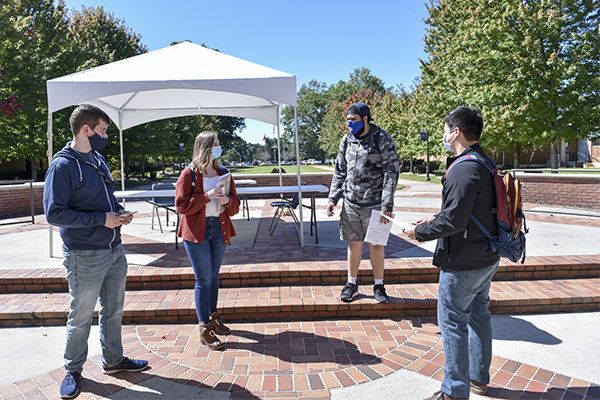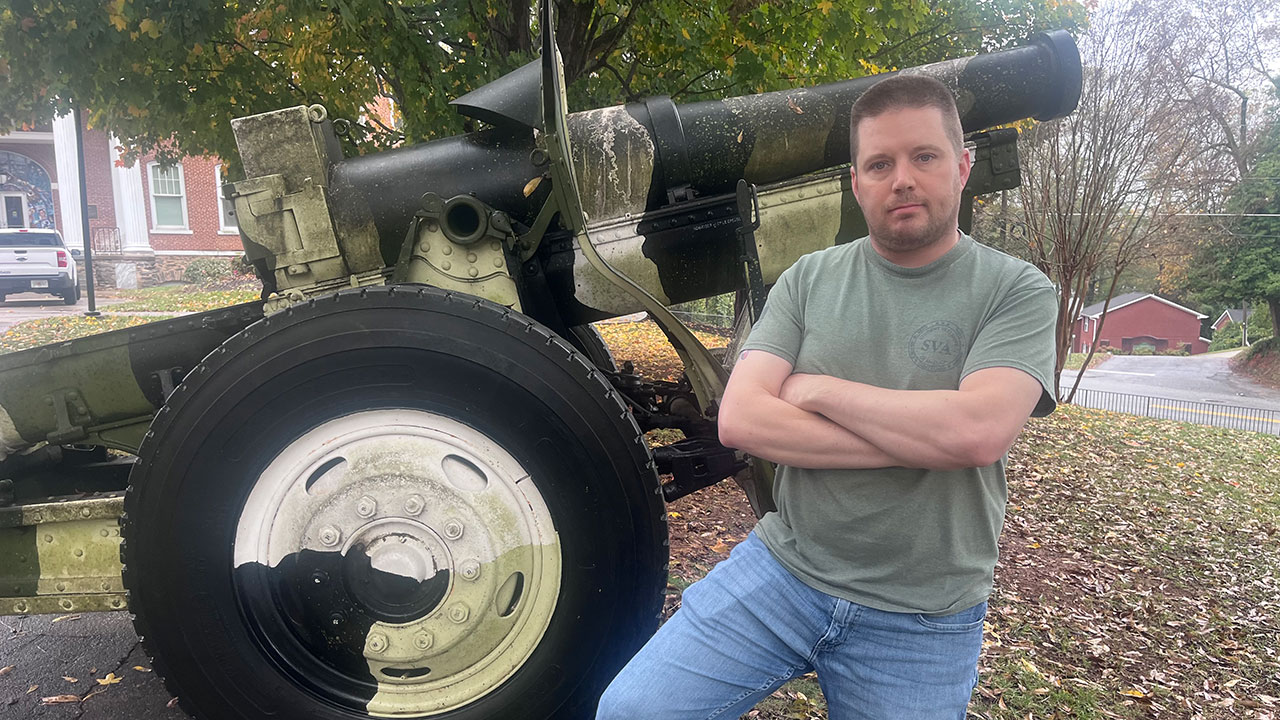Graduate and undergraduate students aim to register and educate voters

Article By: Staff
For the first time, University of North Georgia (UNG) alumnus and graduate student Mark Ginter will vote in the presidential, state and local elections this November.
The 31-year-old from Athens, Georgia, said he and many young eligible voters don't cast ballots because they think nothing will change. Ginter's view shifted in 2020 when he started participating in protests.
"Voting is the biggest tool students have to make a difference," Ginter said. "To make changes in our community, we have to become politically active in some way."
According to the National Student of Learning, Voting and Engagement, 82% of eligible voters at UNG registered for the 2018 midterm elections. Of those, 55.3% cast their ballot to give UNG an overall voting rate of 45.4%. That is higher than the 39.1% average voting rate of all higher education institutions.
Ginter and a dozen other UNG students plan to boost their efforts to educate the student body through a grant from the national organization Students Learn Students Vote Coalition. Ginter and Dr. Carly Redding submitted a proposal to develop voter registration campaigns, devise voting issue discussions and create contests to engage UNG's student body. The national coalition approved the grant in fall 2020 and that led Ginter and others to take action on all five UNG campuses.
"The grant specifically gives money to students involved in democracy fellowships at the graduate and undergraduate level," said Redding, director of academic engagement and associate professor of sociology and human services. "It allows them to lead and promote the education projects."
The grant empowered students to form the Voice Of The Emancipated (VOTE) club and sponsor events. Two undergraduate students based on each of UNG's five campuses organize and host events with three graduate students supervising.
Projects included voter registration campaigns in August and September and discussions on election issues in October. Ginter said educating students about the issues and candidates is just as important as registering them to vote.
"Voting blindly can lead to some terrible outcomes," he said. "It is important to learn about who is running and what their stance is."
To help, VOTE hosted a few in-person and virtual ZOOM events. An Oct. 8 forum focused on the importance of local elections, election laws and their impact. The featured speaker was Amy Toman, former executive director of the Florida Elections Commission and current deputy city attorney for Tallahassee, Florida.
A question-and-answer session about the upcoming elections on Oct. 16 featured Kate Wassel, who interned at the Center for Economic Studies within the U.S. Census Bureau.
Another forum will be at noon Oct. 21 to discuss the Electoral College with Dr. Douglas Young, professor of political science at UNG who has taught 20 different courses centered on politics.
Accompanying those forums are activities designed to engage students. For example, Tiffany Prater's graphic design class competed in a T-shirt design contest.
"We thought a T-shirt competition would be great way to get under-represented groups interested, out there and active," Ginter said.
It worked. Prater, assistant professor of visual arts, said her students felt more confident about participating in the voting process and voicing their thoughts after reading the information from Redding and examining the Student Learn, Student Vote Coalition website.
Her students also delved into the competition. Sonia Cardoso won with her design inspired by the American icon, Rosie the Riveter. Cardoso, who is pursuing a degree in visual arts with a graphic design concentration, wanted to evoke a message to vote together as united Nighthawks.
The contest had another byproduct.
"From a graphic design standpoint, this contest enabled my students to research on how to increase student voter participation on campus using visual communication," she said. "On the other hand, as the students presented the designs, they shared stories on how the election has affected them personally. They also learned other ways for the student body and themselves to vote that they didn't realize existed."
For more information about VOTE, follow them on Facebook, Instagram and Twitter.



